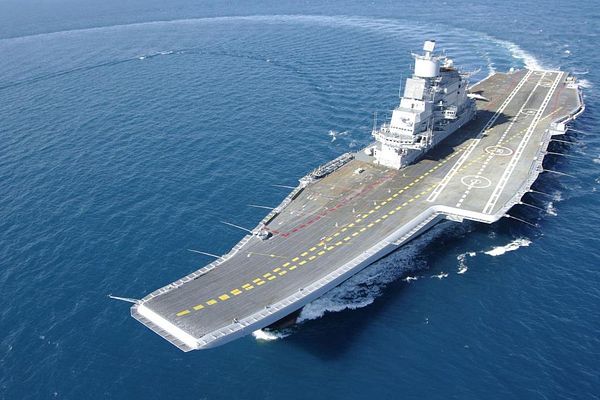
Modi to commission first indigenous aircraft carrier INS Vikrant on Sep 2
PM will commission India’s first indigenous aircraft carrier at the Cochin Shipyard in Kochi; he will be in Karnataka and Kerala on September 1-2 to attend several programmes

Prime Minister Narendra Modi will commission India’s first indigenous aircraft carrier, INS Vikrant, at the Cochin Shipyard in Kochi on Friday, September 2.
The Prime Minister’s Office (PMO) said Modi will be in Karnataka and Kerala on September 1-2 to attend several programmes, including a visit to the birthplace of Adi Shankaracharya at Kalady village near Cochin airport. He will also inaugurate and lay the foundation stone of projects worth around Rs 3,800 crore in Mangaluru.
The PMO noted that Modi has been a strong proponent of self reliance, especially in strategic sectors, and the commissioning of INS Vikrant will mark a significant step towards this.
India’s largest ship
It will be the first indigenously designed and built aircraft carrier.
Designed by the Navy’s in-house Warship Design Bureau (WDB) and built by the Cochin Shipyard, a public sector shipyard, Vikrant has been built with state-of- the-art automation features and is the largest ship ever built in the maritime history of India.
The aircraft carrier is named after its illustrious predecessor, India’s first, which had played a vital role in the 1971 war, the PMO noted.
It has a large number of indigenous equipment and machinery, involving major industrial houses in the country as well as over 100 MSMEs. With the commissioning of Vikrant, India will have two operational aircraft carriers, which will bolster the maritime security of the nation, it said.
Naval ensign
Modi will also unveil the new naval ensign (Nishaan), doing away with the colonial past and befitting the rich Indian maritime heritage, it added.

In Mangaluru, the PM minister will inaugurate the project worth over Rs 280 crore for mechanisation of “Berth No 14” for handling containers and other cargo undertaken by the New Mangalore Port Authority.
The mechanised terminal will increase efficiency and reduce turnaround time, pre-berthing delay and dwell time in the port by around 35 per cent, the PMO said.
Phase I of the project has been successfully completed, thereby adding over 4.2 MTPA to the handling capacity, which would further increase to over 6 MTPA by 2025.
With agency inputs

